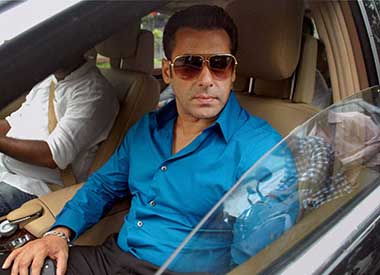There were many who gloated over Salman Khan’s conviction by a Mumbai court. Such happiness is not because they feel justice has been done to the victims involved in the incident. It appears essentially as a glee that follows from seeing the fall of a controversial superstar who was strutting across Bollywood like a colossus. Not to mention, the actor frequently got into trouble due to an exaggerated notion of his status.In my view the fiendish delight of many who celebrated Khan’s misfortune is essentially an Indian trait. [caption id=“attachment_2234122” align=“alignleft” width=“380”]  Bollywood actor Salman Khan. PTI[/caption] I am not here to defend Salman. From the facts put out by the press over the years, he has possibly been rightly convicted for his utter rashness and negligence. I am happy his heroic attempt to cover up his misdeed did not succeed. At the same time we should not grudge him all the privacy and legal assistance he is entitled to as a citizen. There is also the relevant question as to whether he got his desserts only because he was a celebrity. A lesser person may have got away from the crime. It is the experience in most of India that traffic accidents are about the most easily manipulated by dishonest police officers acting to save a moneyed offender. A wronged victim ( many either poor or from the middle class) is very often presented to the court as a negligent pedestrian who brought the misfortune upon himself. The rough sketch of the scene of accident is often wantonly wrongly drawn up in the very first instance so as to bail out a rash driver. The introduction of his driver, made to accept responsibility for Khan’s fault, is a tactic normally employed by many car owners to save themselves. It is not very difficult for a judge to see through the game. To punish Salman’s driver for perjury is, in my opinion, totally unfair. When many in society’s higher echelons are eminently purchasable, it seems unjust to penalise a lowly driver whose options were obviously limited. Very often this subterfuge leads to such a lot of confusion that the judge hearing the case is inclined to give the totally undeserved benefit of doubt to the offender. If this did not happen in the Salman case it is because of the enormous publicity that the case had received and the hawk-like media attention that was involved. Let us now leave Salman alone. With the Bombay High Court order today, he has to fight his case in the court without much public glare and battle for survival in the film world too. But what are the lessons drawn for the future? The first positive outcome in my view would be greater caution on the part of the rich and famous urban road users and their wards who imperil our lives zipping across in their fashionable Audis and Lamborghinis. Many of them ignore the age-old advice that they should avoid driving while under the influence of liquor. For some time to come they may be rightly expected to behave themselves. Only for some time. Whether they will be able to enforce similar discipline in their children is a matter of doubt. Many of the latter are allowed to drive even before they had received their licences. In such cases it is the parent, who also happens to be the owner of the vehicle, who deserves a more stringent punishment. However, such a course of action rarely ensues. Secondly, the Salman investigation should be prescribed as compulsory reading in police training institutions. This is because the case seems surprisingly well investigated, not the normal happening in major cities where there is enormous pressure n the police both from the victim and the prosecution. A clinical study of the case diary and the judgement would yield a wealth of valuable training material that would keep future investigators on the right track without succumbing to temptations offered by the guilty party. This is the only way we can raise an efficient and honest corps of accident investigators, something that the Indian Police sadly lacks. (The writer is a former director of the Central Bureau of Investigation.)
It is the experience in most of India that traffic accidents are about the most easily manipulated by dishonest police officers acting to save a moneyed offender.
Advertisement
End of Article
Written by RK Raghavan
RK Raghavan is a former director of Central Bureau of Investigation and a former joint director of the Intelligence Bureau, New Delhi see more


)
)
)
)
)
)
)
)
)



